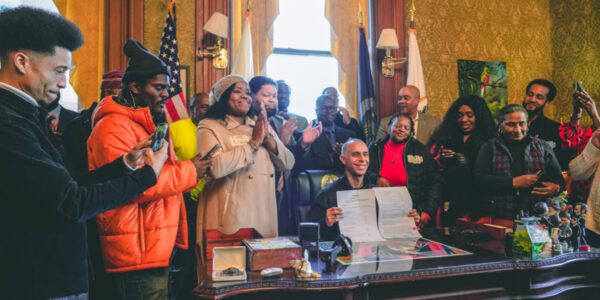‘There’s Nothing That Will Be Repaired’: Rhode Island City Just Approved Reparations for Black and Native Americans, But White People Can Also Apply
Seeking to close the racial wealth gap and address the lingering effects of racial discrimination in the city, Providence, Rhode Island, has set aside $10 million for a reparations program, but some are concerned the money may not be used how it is intended.
The city’s mayor Jorge Elorza approved the tranche of money in November hinging on a comprehensive study completed in August by a reparations commission he launched after protests over George Floyd’s death.
The Providence Municipal Reparations Commission report detailed the city’s role in the colonization of the land, enslaved African labor and race-based discriminatory practices ending with an 11-point investment plan “that advances reparations.” However, white residents could also qualify for reparations under the program’s guidelines.
The grant funding can be used for programs that address homeownership, financial literacy, educational opportunities, health care, and business development, among other things for Black and indigenous residents. Still, the funding was provided through the American Rescue Plan Act, which requires its allocation to be race-neutral.
To qualify for the programs, applicants must be born in Providence or lived or attended college in the city for the last three years. Residents who live in certain Census tracts or earn less than 50 percent of the area median income could eligible for the programs, which could include more than half of the city’s White residents, reports show.
The median income for white households in Providence is $54,300, U.S. Census Data shows. The median income for Black households in the city is $41,100, and Native American households have a median income of $23,900.
“But it’s not even the racial gap because there are way more poor White people living in Providence than anybody else,” April Brown, the director of the Racial and Environmental Justice Committee in Providence, told The Washington Post. “Reparations means that you’re repairing something. There is nothing that will be repaired by what the reparations commission put forth.”
About 23 percent of the city’s mostly white population live below the federal property line. Census data shows that 53 percent of Providence residents are white, of which about 19.3 percent are Hispanic.
Some critics of the program also worry that it could serve as a substitute for larger reparations programs or direct payments for Black Americans. Reparatory economists estimate a national reparations program based on the racial wealth gap could cost $14.7 trillion.
Chicago suburb Evanston, Illinois, has launched a reparations program generated from marijuana tax allocating $10 million so far for descendants of enslaved Africans. California is slated to finalize its plan for state reparations in June 2023.
“This is a short-term response to a 400-year problem because it makes people feel better,” community organizer Justice Gaines told The Washington Post. “My big fear is that there are now white people in our state who could say we already gave them reparations” and nothing more needs to be done.
Gaines and other community leaders are concerned that many Black and Indigenous residents may miss out on the programs. The city has extended the deadline for three of the grants to Dec. 19, but bids for another seven are closed and under review.
Providence director of business development Keith Stokes told CNN the city has been reaching out to “any and all potential participants in this program.”
“If people want to debate, process and policy and implementation, absolutely, they should,” Stokes said. “But the intent here has always been an intent to get these dollars and get these policies and programs out to the people and communities of the greatest need.”

